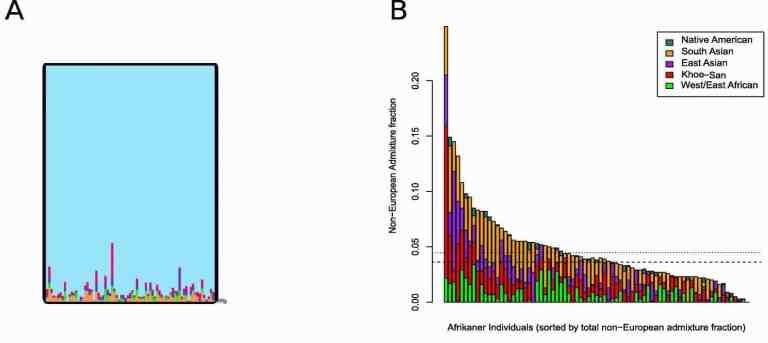RKUL: time well spent 08/08/2021
Recommendations for everything, vacation edition

Your time is finite. Your phone and the internet stand ready to help you squander it. Here are my latest picks for spending it well instead. Feel free to add more in the comments.
Books, what else?
My friend Kathryn Paige Harden’s The Genetic Lottery: Why DNA Matters For Social Equality is a well-written book that presents a somewhat tendentious position, at least to many of a progressive bent, that genetics must be considered when we design a liberal order. You can read my review over at UnHerd, though if you are subscribed to the paid version of this newsletter I’ll eventually be posting a much longer version of the review on this Substack.
Before Harden, Robert Plomin, the doyen of modern behavior genetics, contributed his own book to explain the results of the field, Blueprint: How DNA Makes Us Who We Are. Again, you can read my review in National Review. Plomin is far more enthusiastic and less measured than Harden, but Blueprint also has far less political and social content to address, so he digs more into the details of the arc of the field of behavior genetics over the 20th and early 21st century (also, here is a conversation I had with Plomin about the book a few years ago).
Patrick Wyman’s book, The Verge: Reformation, Renaissance, and Forty Years that Shook the World, is finally out. My review in National Review, or, if you missed it, listen to my interview with Patrick about the book.
Speaking of reviews, I reviewed Charles Murray’s Facing Reality: Two Truths about Race in America for Quillette (also, my interview with Murray in the fall).
While I’m mentioning behavior genetics this week, I must point readers to the late Judith Rich Harris' The Nurture Assumption: Why Children Turn Out The Way They Do. Harris totally destroyed the simple models of child development of parents über alles which were ascendant in the late 20th century. Freudianism is wrong. Very wrong. Genes and society matter far more than parents in shaping character.
Steven Pinker’s newest book, Rationality: What It Is, Why It Seems Scarce, Why It Matters, will be out in September. I have a review copy in hand and will get my two cents in soon. While we’re talking about rationality, I want to mention Julia Galef’s The Scout Mindset: Why Some People See Things Clearly and Others Don't. I’ll be reviewing it, but I expect to like the book because Julia has been one of the most influential and measured voices in the Rationality community over the past decade. Also, check out Hugo Mercier’s Not Born Yesterday: The Science of Who We Trust and What We Believe, for a good antidote to the idea that humans are trapped and led around by their cognitive biases.
Thought
The Water Crisis in Climate-Vulnerable Bangladesh. This mostly involves coastal areas, but since tens of millions of Bangladeshis live in those regions, it’s a big deal.
Amtrak should bring in foreign experts to make trains great again We're on the verge of a transformative investment — or $30 billion in waste. Matt Yglesias' best stuff is the least relevant to current culture wars.
Freddie DeBoer, Genes Still Matter, but can we have a healthy conversation about them? Honestly, Freddie? No.
Are Syrian Jews Arabs? Our History Detective columnist traces the story of Syrian Jews, and Jews from Syria. Read it if you don’t know much about Sephardic and “Sephardic” Jews.
Why is China smashing its tech industry? Maybe because what countries think of as a "tech industry" isn't always the same. I don’t think I need to say much more beyond the title.
Beyond the !Kung A grand research project created our origin myth that early human societies were all egalitarian, mobile and small-scale. I share this view.
Titus Techera’s Substack on film is worth checking out. His latest discussion about Whit Stillman's Barcelona is worth listening to.
Data
The omnigenic model and polygenic prediction of complex traits. Kind of a depressing paper, but worth reading.
Modelling the spatiotemporal spread of beneficial alleles using ancient genomes.
Towards a genome sequence for every animal: where are we now? The fact that the question can even now be asked is pretty cool.
Evolutionary origin of sex differentiation system in insects.
My Two Cents
There’s still no free lunch, free subscribers; my most in-depth pieces for this Substack are beyond the paywall. Many of you have probably already read my most recent A Little Light Reading, where I highlight something from each of the six pieces on Finland.
But I just put out a new paid-only post, Under the skin The genetics and natural history of human pigmentation:
As a society, we have color on the brain, so most think they have some grasp of how the characteristic is inherited. But the intuition derived from blending-inheritance models that future human populations will be overwhelmingly brown is false. Genetics does not blend, but rearranges variation, so while the average person in the future is more likely to have a brown shade, white and black extremes will never disappear. Skin color clearly varies, with populations in the far north and far south having lighter complexions than ones around the equator. But so much remains to be understood about the origin and persistence of variation in color. In the last few decades, genetics has uncovered that these characteristics evolved incredibly recently in the sweep of human history, and continue evolving into the present. Whether your complexion is light or dark is not a deep-time characteristic, but often a quite recent development. No clear model exists for why humans grow pale in some geographical regions, and not in others. Only with new technologies such as ancient DNA have we come to realize that Northern Europeans 3,000 years ago were darker than they are today. And these surprises go back to the root of our lineage; even Neanderthals varied in complexion.
Discussion
Again, you probably know most of the new podcasts if you receive my A Little Light Reading posts. But since the most recent installment, I’ve posted a new podcast, Jared Rubin: Christianity and Capitalism: Did the peculiar nature of Western Christianity foster the rise of capitalism?
Here are the currently ungated podcasts all in one place. All my podcasts go ungated two weeks after their Substack release. So I encourage subscribers on the free plan who’d like to automatically get them to subscribe to that podcast stream (Apple, Stitcher, and Spotify).
Here were my July guests:
Again, I talk most Fridays on Clubhouse about some genetic or historical topic. Join my club for notifications. These conversations are more unscripted and free-form than podcasts. I can report that I have been hailed for my assertive use of the mute option. It’s best for everyone, I swear. I also heckle my friends. Not a fan of the “this is more of a comment than question...” contributions but I do always take legit questions!
You can’t make this up
And you don’t have to because my children attend public schools. Here is an activity our then-five-year-old spent time in public school doing, presumably one-on-one with an adult, because he was pre-literate. Spoiler: it’s yesses all the way down.
ICYMI
Some of you follow me on my newsletter, blog, or Twitter. But my own domain also has all of the links and updates:
. You’ll find links to the few different podcasts I’ve contributed to or run, my total RSS feed, links to more mainstream or print articles when I remember to post them, my Twitter, the occasional guest appearance here and there, etc.
Email me
DM me
Facebook message me
My total feed of content
My long-time blog, GNXP
A group blog, Secular Right, most worthwhile for Heather Mac Donald’s prescience
My Indian/South Asian focused blog, Brown Pundits
You can also find what I’ve written for UnHerd, National Review, The Manhattan Institute, and The New York Times at their archives
My old podcast, The Insight
My podcast today, Unsupervised Learning
I’m also a regular guest on The Study of Antiquity and the Middle Ages, The Carvaka, and Urban Chatterati.
On the blog
If you are curious about the non-European admixture into Afrikaners/Boers, I wrote a whole post on the topic on my weblog.
Over to you
Comments are open to all for this post, so if you have more reading/listening suggestions or tips on who I should be talking to or what I really should be writing for you, please weigh in.





Listening to "the Lost history of Christianity" now.
"presents a somewhat tendentious position, at least to many of a progressive bent, that genetics must be considered when we design a liberal order"
tell me about it